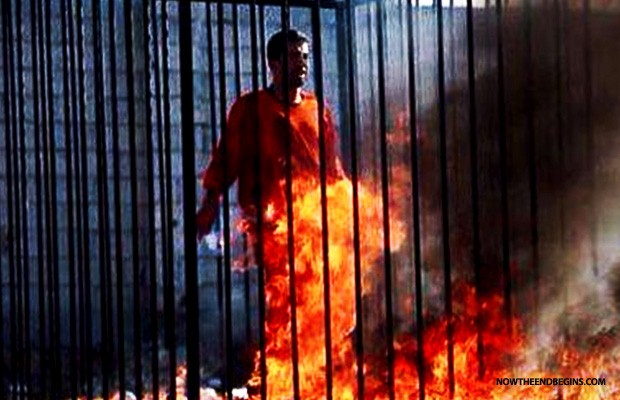
It seems not any more beheading, Crucifixion and other insane punishment satisfy ISIS terrorist and they chose burning people to death as a new method to threatening people.
Local official Mowaffaq Hamid al-Azawi said on Friday that the ISIS/ISIL members executed the victims in the western al-Islah neighborhood of the city, located some 400 kilometers north of the capital, Baghdad, after the men refused to pledge allegiance to the terrorist group’s leader, Ibrahim al-Samarrai aka Abu Bakr al-Baghdadi, Arabic-language Karbala news agency reported.
Azawi further described Mosul as a big open-air prison, where residents are subjected to various kinds of torture and are suffering at the hands of the ISIL.
He added that some scholars in the city even distort religious principles to serve the ISIL’s interests.
The development came on the same day as the ISIL militants immolated three civilians in the town of Hit, located about 140 kilometers west of Baghdad, after accusing them of collaborating with the Iraqi security forces.
The brutal executions are similar to the one carried out against Jordanian pilot Moaz al-Kassasbeh, who was captured and held by the terrorists as a hostage. On February 3, the ISIL posted a video online showing the Takfiri terrorists setting the airman on fire.
The ISIL started its campaign of terror in Iraq in early June 2014. The heavily-armed militants took control of Mosul before sweeping through parts of the country’s Sunni Arab heartland.
The terrorists have been carrying out horrific acts of violence, including public decapitations, against all Iraqi communities such as Shias, Sunnis, Kurds and Christians.
Iraqi soldiers, police units, Kurdish forces, Shia volunteers and Sunni tribesmen have succeeded in driving the ISIL terrorists out of some areas in Iraq.







